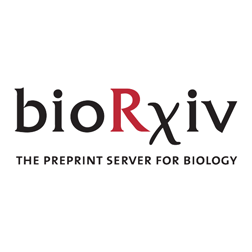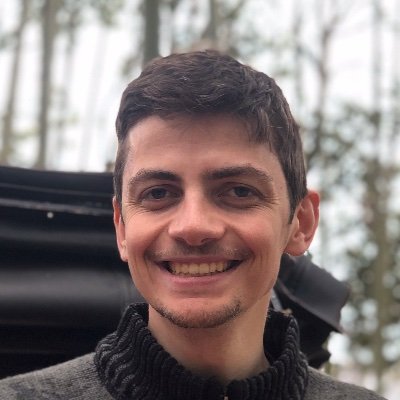
Dror Lab
@DrorLab
Followers
1K
Following
6
Media
3
Statuses
25
The Dror Lab at Stanford. For all your computational needs: MD, ML, HPC... Applied to biochemistry, cell biology, drug discovery, and more!
Stanford, California
Joined October 2019
How accurately can one predict drug binding modes using AlphaFold models? New work from our lab reveals AF2's improved accuracy in capturing binding pocket structures, but the results of docking are not a slam dunk. 💥🧐 Check out the preprint: https://t.co/eS38wMoSoF
biorxiv.org
Computational prediction of protein structure has been pursued intensely for decades, motivated largely by the goal of using structural models for drug discovery. Recently developed machine learning...
0
15
65
A new paper from our lab, @MIPS_Australia, and @KarunaPharma uses atomic-level simulations to reveal a molecular mechanism by which a ligand can achieve selectivity between nearly identical receptors. Open access: https://t.co/GAB1vRGl3H
nature.com
Nature Chemical Biology - The use of atomic-level simulations reveals a molecular mechanism by which a ligand can achieve selectivity between nearly identical receptors, enabling the rational...
0
16
77
Now out on the cover of @ScienceMagazine: Our work with @RDasLab on predicting 3D RNA structures! https://t.co/4iTjfb7G2f Check out the official press release: https://t.co/4Faqa0MtTC and our earlier work on protein complexes: https://t.co/Aua3f31Ip9
0
17
67
AlphaFold for RNA? Excited to share our @StanfordAILab work on deep learning for predicting 3D RNA structure, out today on the cover of @ScienceMagazine! https://t.co/5T9rzHmRP2 Sound interesting? Join us at https://t.co/6Yv5OUqGoX to bring this work to life! More news soon!
16
367
1K
We are excited to present our work on Geometric Vector Perceptrons, an equivariant GNN architecture for residue-level protein graphs, at ICLR! Check out our spotlight talk https://t.co/gp8sD0rmIS and Github repo https://t.co/fVriL7ZD9f.
github.com
Geometric Vector Perceptrons --- a rotation-equivariant GNN for learning from biomolecular structure - drorlab/gvp-pytorch
0
16
75
Check out our latest paper exploring the effects of GPCR phosphorylation on arrestin signaling with great collaborators @MattMasureel, Kobilka lab, and @Michel_Bouvier!
1
2
14
We benchmark 3 prototypical architectures - 3D conv. networks, graph networks and equivariant networks - and compare them to 1D/2D baselines. We find that 3D info can strongly improve model performance, but it depends on the choice of architecture for a particular task. [4/4]
0
1
6
The corresponding code to load, filter, and split the ATOM3D datasets is maintained on @github: https://t.co/9Ko3mylkYN. We hope this lowers the entry barrier for algorithm developers and promotes 3D atomic data as a “machine learning datatype” in its own right. [3/4]
github.com
ATOM3D: tasks on molecules in three dimensions. Contribute to drorlab/atom3d development by creating an account on GitHub.
1
0
5
We have assembled a collection of 8 datasets (among them 3 novel ones), spanning the categories of structure, interaction, function, and design. We describe the rationale behind each of these and provide best practice guidelines and benchmarks: https://t.co/O6RUXjUQfw [2/4]
arxiv.org
Computational methods that operate on three-dimensional molecular structure have the potential to solve important questions in biology and chemistry. In particular, deep neural networks have...
1
0
3
Looking for new challenges for machine learning in structural biology? Check out our recent release: ATOM3D, a unified collection of diverse benchmark datasets for biological problems that deal with atom coordinates in 3D space. ⚛️⚛️⚛️ https://t.co/kmf9lVo1rq [1/4]
atom3d.ai
A collection of benchmark datasets for machine learning in structural biology
2
30
127
Machine Learning in Structural Biology (@workshopmlsb) is accepted at #NeurIPS2020! Come check out the exciting line-up of speakers and dates for the call for papers at https://t.co/blpB8vVz2M (more details coming soon). Register interest at
docs.google.com
Indicate your interest + get on the mailing list for announcements regarding the upcoming NeurIPS MLSB workshop.
0
34
95
Excited to present our latest work on geometric prediction: the class of prediction problems for (non-scalar) geometric tensors! We show the first real-world demonstration of geometric prediction without the need for scalar approximations. https://t.co/fwUD01NowW [1/n]
1
26
79
Somehow this slipped my radar. Very cool looking work from the @DrorLab: Hierarchical, rotation-equivariant neural networks to predict the structure of protein complexes. https://t.co/Wi97CFMMv8
0
9
59
Such a method is readily applicable to other tasks involving learning on 3D structures of large atomic systems. (3/3)
0
2
3
Starting with just the element type of each atom, we learn features at different levels of structural coarseness and aggregate this information hierarchically. The rotation-equivariant network recognizes molecular motifs independent of their orientation. (2/3)
2
2
3
Excited to share our work on learning from the 3D structure of macromolecules! Our neural network architecture enables us to learn directly from all atoms in protein complexes containing tens of thousands of atoms: https://t.co/LkGNkEIIMH (1/3)
1
10
45
Excited to present two papers just out in Science on how to create more effective drugs with fewer side effects! https://t.co/Qc63Kab3n0
1
15
55
We have 2 papers published in @nature today! 🎉 One describes AlphaFold, which uses deep neural networks to predict protein structures with high accuracy. AlphaFold made the most accurate predictions at the 2018 scientific community assessment CASP13. 1/4
deepmind.google
In our study published in Nature, we demonstrate how artificial intelligence research can drive and accelerate new scientific discoveries. We’ve built a dedicated, interdisciplinary team in hopes...
13
517
1K
The rebirth of #MLCB2019 was great. Great posters and talks all around. Thanks to the organizers and everyone who came up for making it awesome. Let's make this happen every year---but with coffee during the coffee break in the future.
1
5
31











